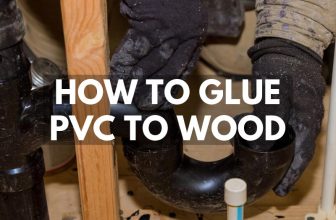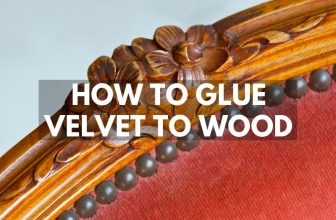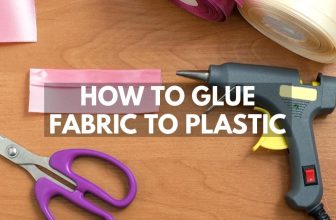Read our quick and easy guide on how to glue vinyl to metal for the strongest bond possible!

In this guide on how to glue vinyl to metal, we share the best kind of glue to use and how to make sure you get a good bond between the two different surfaces. You will learn the simple tricks professionals use to get a sturdy finish that won’t come unstuck, ever.
How to Glue Vinyl to Metal
While it depends on your types of metal and vinyl, epoxy is the best glue to bond these surfaces together. To secure the bond, you’ll need cleaned and slightly rough surfaces. Apply the sealant to both pieces, holding them tightly together for a full minute, and let it cure overnight.
Whether you’re working on home or auto repairs- or building a hobby model, knowing the right type of glue and how to use it is important.
Gluing vinyl and metal incorrectly results in a weak joint, wasted time, and an unhappy customer if you are doing the work for someone else. That’s why the rest of this article will cover the top three types of glue to use on vinyl and metal and how to properly adhere them together with the best methods and cure times.
Which Glue Should You Use for Vinyl to Metal?
Here are the top three types of adhesive we would use to bond vinyl and metal together, starting with our top pick:
Epoxy
Most experts recommend epoxy as the best glue when adhering vinyl to metal. It is waterproof, heat resistant, and forms a strong bond once fully cured. You will want epoxy specific for metal to ensure the strongest adhesive.
There are lots of different brands of epoxy that all do the same thing so the best thing to do is go with one of the big names for most metal and vinyl jobs. JB Weld clear epoxy is a fine choice but you can also get it in other colors to match the materials you are using to make the joint more discreet.
Polyurethane
Polyurethane does not provide as strong of a bond as epoxy but still works wonders when adhering metal to vinyl. A huge perk to polyurethane is that it expands while it bonds, thus filling any cracks and finding a better surface grip.
You may need heat or moisture to activate the glue with any metal. While this may sound like a disadvantage, room temperature or humidity is often enough.
Superglue
While normally a household go-to for small projects, extra-strength superglues work great with small metal and vinyl projects. Superglue, or cyanoacrylate glue, adheres with rapid speed and is recommended for smaller metal-to-vinyl indoor projects.
Superglue is also not bendable once cured, making it not the best glue for any project with moveable joints.
How to Prepare Vinyl and Metal Before Gluing
The first thing you need to do before pulling out the glue is clean your surfaces. Without cleaning your surfaces first, you risk trapping dirt and other debris between the bond, compromising it.
Take a clean cloth and wipe the metal and vinyl items with a little water. Wipe away any excess water after cleaning to ensure they are dry.
You may need to rough them up to create a strong bond between both items, especially if the surfaces you are gluing are smooth. Take a piece of fine-grit sandpaper and rub the surfaces.

How to Apply Glue to Vinyl and Metal
First, set yourself up in a clean, well-ventilated area. It is important to also read all manufacturer instructions from the glue you chose to learn about drying times and specific application guidelines.
If you choose to use epoxy, you might need to mix the two parts, the hardening agent and resin, together in equal portions before starting. Sometimes you can purchase epoxy that is already pre-mixed. Use the tool included with the epoxy to apply the glue to both surfaces.
Apply the proper amount of glue listed on the product’s packaging. If you are using super glue, you only need a small drop per square inch of surface. Press the two pieces firmly together for a solid minute to avoid any gapping.
How to Cure Vinyl and Metal Glue
Cure times rely solely on the type of glue you use. For example, some polyurethanes can cure fully within 24 hours, while others take up to two weeks to form a completely cured bond. Most polyurethanes, however, cure fairly quickly, creating a strong enough bond that does not require clamping.
While epoxy glue is dry anywhere between five and thirty minutes, it takes up to twenty-four hours to get a solid bond. Epoxy glue, specifically for metal, will take longer to adhere. Clamp the surfaces together for at least an hour while it cures.
Super glue bonds in mere seconds, making it the fastest curing glue on this list. However, if you want a stronger, completely cured bond, leave your surfaces undisturbed for 24 hours.
Conclusion
Epoxy is the best glue to use when working with metal and vinyl because it is water resistant and creates the strongest bond. If you want an even stronger bond, clean off your surfaces, rough them up with sandpaper, and use clamps to strengthen them.
We hope you found this guide on how to glue metal to vinyl or metal to vinyl useful and that you now feel confident to get started on your project.










